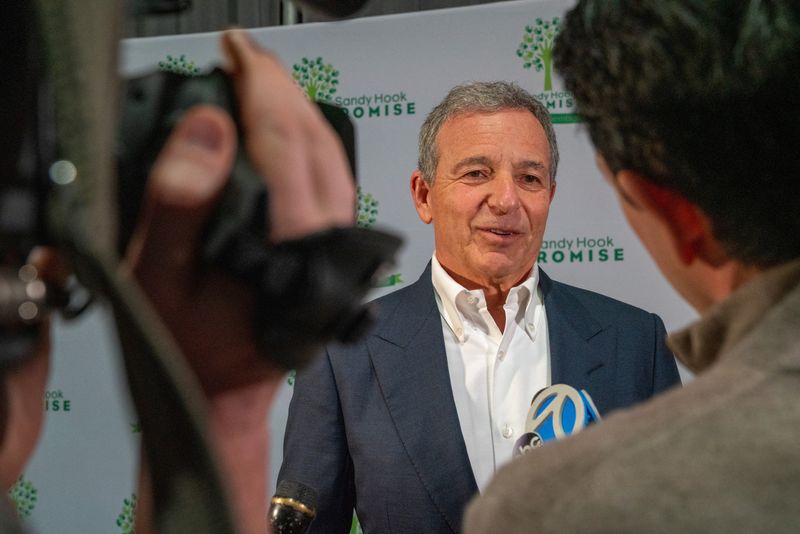(Reuters) -Walt Disney wants to keep ESPN and will look for strategic partners to form a joint venture or buy a stake in the sports network to help take it directly to consumers, CEO Robert Iger said on Thursday in an interview to CNBC.
Speaking for the first time since Disney extended his contract until the end of 2026 on Wednesday, Iger also hinted that the company could sell some of its traditional TV assets that have struggled for years due to the rise of streaming services.
"We're going to be open-minded... not necessarily about spinning ESPN off but about looking for strategic partners that can either help us with distribution or content," Iger said.
"We want to stay in the sports business."
Iger returned from retirement in November last year to help revive growth at Disney, which has been battling cord-cutting at its linear business and steep losses in the streaming unit.
He said on Thursday the company will be "expansive" in its approach to the traditional TV business, which includes broadcast, cable and satellite.
"They may not be core to Disney," said Iger, who has for years warned about the ongoing decline in linear TV.
ESPN, a long time cash cow for Disney, is also caught between declining cable subscribers and increasing fees paid to sports leagues. It laid off about 20 of its personalities last month to help manage costs and hit its financial targets.
HOLLYWOOD STRIKE
Iger also took issue with the ongoing strike by Hollywood writers, saying it was the "worst time in the world" for such a move as it added to the disruptions of the COVID-19 pandemic.
The remarks came just hours after negotiators for the actors union unanimously recommended a strike after talks with studios broke down, setting the stage for performers to join writers on the picket lines as early as Thursday and disrupt scores of shows and movies.

"There's a level of expectation that they have that is just not realistic," Iger said, adding that the strikes will have "a very, very damaging effect on the whole business."
Disney shares were little changed in a broadly stronger market.